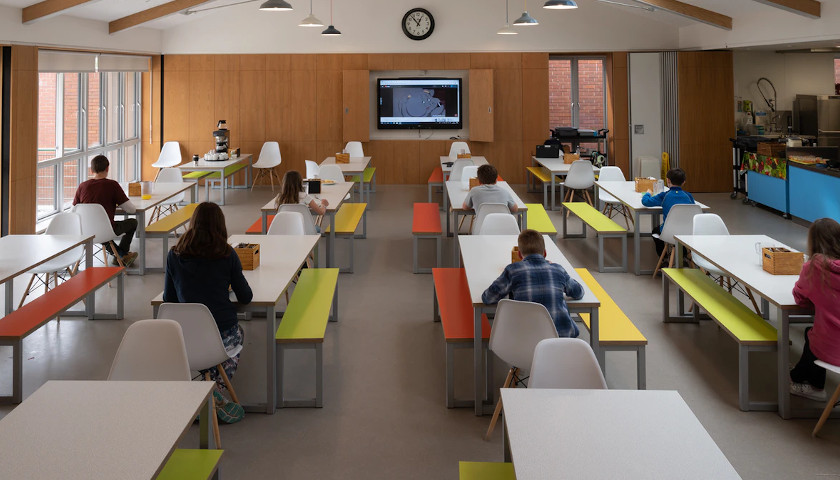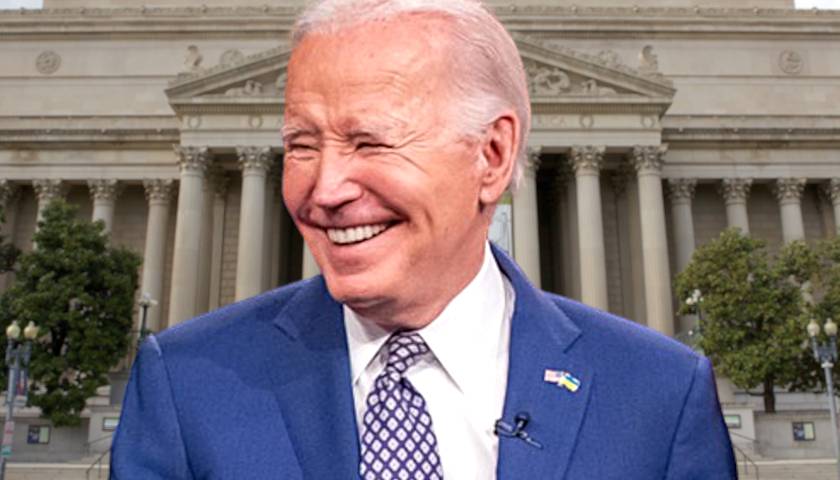For the 2021-2022 school year, Virginia’s schools will be required to provide both full-time in-person and virtual learning options to students, thanks to Senator Siobhan Dunnavant’s (R-Henrico) SB 1303. A bipartisan effort in the House Education committee led to a bill that passed out of the House of Delegates 88 to nine, and was approved by the Senate on Thursday 36 to three. Although Republicans weren’t able to get support for an emergency clause that would have triggered the requirements before July, Governor Ralph Northam is also calling for schools to begin phasing in in-person learning.
“Today we have a spark of hope that we can begin to assess our children and help them heal. Science has won the day and overcome the obstacles of misinformation and special interests. I am equal parts relieved and frustrated. It’s been a long battle to agree on what seems to be good common sense,” Dunnavant said in a press release after the House passed the bill. “While today is a positive, incremental step forward, it is still not what every child deserves.”
Dunnavant thanked Senators Chap Petersen (D-Fairfax) and Joe Morrissey (D-Richmond) for their help.
She said, “Through the ups and downs of this process, the determined advocacy by parents fighting for their children inspired and fortified me. I’m even more dedicated to fighting for Virginia families. I hope they will inspire Governor Northam to add the much needed emergency clause to this bill on its return to the legislature. There are too many children who can’t wait for July 1.”
Policymakers are starting to try to address learning loss caused by virtual learning. In a February 5 letter to school officials across Virginia, Northam said, “I also strongly encourage you to provide additional learning opportunities for any students who choose it, starting this summer. This could include extensive summer classes, remediation, additional instructional time, or even year-round schooling. You have access to federal funds to pay for this, and the Commonwealth stands ready to ensure that you have the resources necessary to address the loss of learning many students have experienced.”
Heritage Foundation Senior Policy Analyst Jonathan Butcher told The Virginia Star that children who have access to extra learning opportunities will recover better than children who do not.
“I think there’s some question about whether there is actual learning loss over summer,” he said. “I think it’s more likely that the children who have fewer books in the home, or may not have access to outside activities, like whether it’s camps or educational community programs over the summer, often the kids that don’t have access to that stuff fare worse than their peers.”
He said educators have a responsibility to uses tests to assess where students are academically, and policymakers have a responsibility to grant educators the flexibility to respond.
“Charter schools can hire and fire teachers based on performance. They can choose the textbooks that they feel like suit the needs of the students in their community,” Butcher said. “I think traditional public schools should have that same kind of flexibility in exchange for the same kinds of transparency where you can shut the charter schools down if they don’t hit specific benchmarks. So, I think that same kind of tradeoff is a change that policymakers can make.”
He said policymakers can also work to create additional options for parents to choose how and where their students learn, including ways to help parents pay for those programs.
A Fairfax County Public Schools study last fall found that minorities, economically disadvantaged students, and special education students had larger increases in poor grades than their peers. But wealthier families who may be less affected by learning loss to begin with also have better access to remedies for those losses.
“There’s reason to think that wealthier parents can provide additional activities for a child when they see that something isn’t going right in school,” Butcher said. “They can pay for a tutor, they can find some sort of program over the summer to help a child.”
But he added, “It doesn’t have to be as complicated as that.”
He noted that children from homes with a lot of books, or with stable families perform better.
Butcher said, “I am calling for lawmakers to look at places like Mississippi [which] has a small education savings account program, North Carolina has one. North Carolina also has private school scholarships, several of them actually, including for children with special needs.”
Butcher also listed Florida and Arizona as states with robust education savings accounts and private school scholarships.
He said, “So this is something where Virginia policymakers should be looking at the whole system through the lens of a child in need.”
“There are studies of charter school students that demonstrate significant gains, even gaining half a grade level, or a quarter of a grade level in a shorter time period than a students was able to in a traditional school. That’s one of the achievements/ benefits of private learning options,” Butcher said.
He said, “When a parent gets to choose how and where a child learns according to their needs, the school is a better fit for that child and can help them catch up quicker than when they were assigned to a school that did not have the kind of programs that a student needs.”
– – –
Eric Burk is a reporter at The Virginia Star and the Star News Digital Network. Email tips to [email protected].




